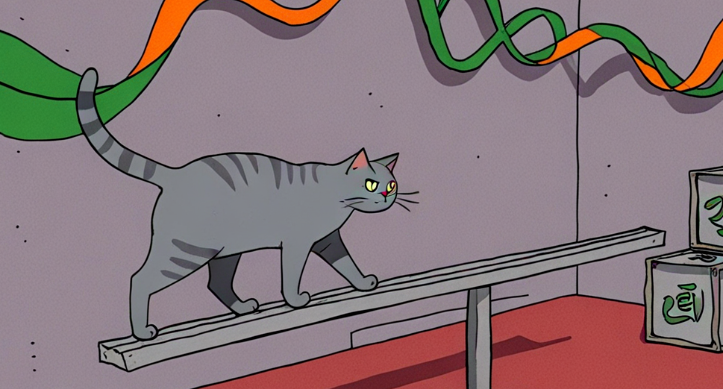Cats truly aren’t all the same. Some are naturally affectionate and love to stick close to their humans, while others remain cool and independent, preferring their own company.Many factors can explain this difference, but the level of interaction with their owner is one of the biggest.Whether a cat parent spends time engaging with their pet every day actually has a huge impact.Cats that enjoy daily interaction versus those that rarely receive attention show striking differences in personality, behavior habits, and physical coordination.
-
Personality: Worlds Apart
The period between 2 and 8 weeks after birth is a critical window for shaping a kitten’s social preferences.Studies show that if a kitten spends at least 30 minutes a day interacting with humans during this stage, about 70% will grow up to be highly affectionate.These cats actively seek companionship, approach strangers without fear, and may even greet them with a curious sniff.Think of kittens raised in shelters where staff frequently pet and play with them—they usually adapt quickly to new homes and willingly engage with their new families.By contrast, kittens that receive little interaction are far more likely to develop aloof or solitary personalities.An observation of 50 kittens found that those rarely held or played with displayed only 30% of the friendliness shown by well-socialized kittens.Most would hide from unfamiliar people.Stray cats are a typical example: lacking early human contact, they often remain wary and avoidant of people.

-
Different Behavior Habits
How a cat responds when you call its name is also linked to daily interaction.A study of 40 cat-owning households discovered that cats receiving over an hour of daily engagement responded to their owners’ calls 82% of the time.In contrast, cats in homes with less than 20 minutes of daily interaction responded only 30% of the time—a huge gap.Frequent play makes cats familiar with their owner’s voice and teaches them to associate being called with positive experiences such as playtime or treats.If your cat ignores you, consider whether you’re simply not spending enough time together.Cats that play and interact often are also more active and energetic.Chasing toys, running, and pouncing during play stimulate their natural instincts, keeping them lively and fit.Cats with minimal interaction, however, lack external stimulation and often become lazy and sedentary, which over time can even lead to obesity.
-
Coordination Differences
Cats that engage in frequent interaction show better physical coordination than those that don’t.In a balance-beam test on 6-month-old kittens, those often held and played with walked more steadily and had a 40% lower error rate than their less-socialized counterparts.The reason is simple: when cats are frequently picked up or engage in active play, they constantly adjust their balance, which strengthens their muscle control and agility.This regular practice makes them noticeably more nimble and sure-footed in everyday life.
Cats that receive daily interaction and those that rarely interact with their owners show clear differences in personality, behavior, and physical coordination.So, how often do you spend quality time with your cat?And on average, how many minutes a day do you actively play, pet, or communicate with your feline friend?





